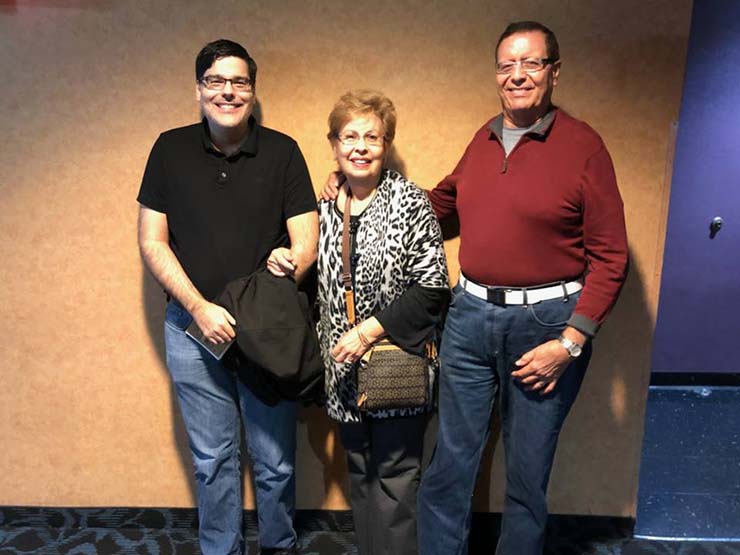
Ruben Rosario, Marianela Rosario, Luis Rosario
The respirator whirrs in rhythmic fashion. The heart rate monitor gives out its periodic alarm marking a change. By this point I've gotten used to the litany of beeps, inhospitably cold temperatures and unflattering bright lights at the intensive care unit of Auxilio Mutuo Hospital. It's springtime in San Juan, but inside these four walls, as my mother lay in a coma, time feels like it's standing still.
Especially now, in this rare moment the two of us are alone together. Nobody is around. My father and brother are probably speaking with concerned relatives in the waiting room. I look at her face, bloated from the cortisone, then lift her blanket and place my forearm, hairy and a little tanned, next to hers, swollen and surrounded by tubes. And then the sense of finality wallops me.
The clock was ticking, as it turns out, and time was not on our side. Marianela Maldonado de Rosario, a lifelong film lover whose favorite all-time movie was “The Sound of Music,” ended up in the place she never wanted to be, something she expressed vocally over the years but did not see the need to put in writing just yet. She would hold on for nearly another month before succumbing to autoimmune inflammatory vasculitis, the same condition that claimed Harold Ramis back in 2014. She was 72.
Looking back, it's inevitable that memories of our time together include watching movies, both at home and at the theater. These moments return to me in shards. It's February, over a month before she was rushed to the hospital and intubated. We're watching the scene in Satyajit Ray's “Aparajito” where Apu's mom, debilitated by terminal illness, looks at her college-bound son one last time. In retrospect, I appreciate the irony of the foreshadowing the universe threw my way.
Then it's a few days before that, when I took my parents to see “Call Me By Your Name” at Fine Arts Cinema in Santurce. She marveled at Northern Italy's lush countryside and Elio's functional relationships with his mom and dad, her knowing expression speaking volumes.
Then it's May 11, and my father is wiping away tears with a white handkerchief and my oldest niece leans her head on my brother's shoulder as the casket that had been draped in the Puerto Rican flag is closed one last time before my mother's remains are cremated.
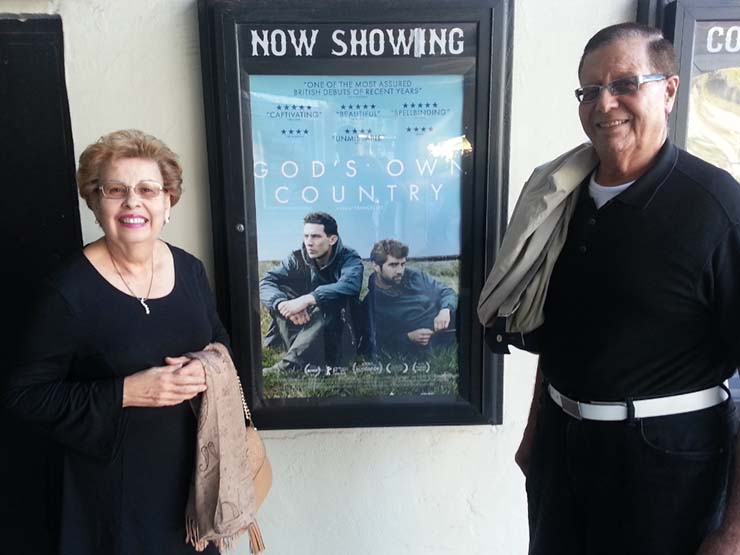
Marianela Rosario, Luis Rosario
And now it's the early '80s, and I'm telling Mom I've just seen this movie on TV called “Madame X,” prompting her and Dad to exchange peculiar looks. They would go on to tell me that Lana Turner melodrama was the movie they went to see on their first date back in 1966.
Now it's May 4, and I'm at work when I get that dreaded (but expected) call from my brother saying the hospital staff had informed him she's gone into cardiac arrest, but we both knew what that meant, and I'm trying to keep it together and not leave too much of a workload to my colleagues before I race home and pack.
It's May 18, and a spring shower has given way to sunshine at Borinquen Memorial in Caguas. I take out my smartphone and record the moment Mom's ashes are placed in the ground, her final resting place labeled with a temporary handwritten sign. Then my Dad, my brother and I did what we often used to do when Mom went shopping. Still wearing our dress shirts and ties, we caught a matinee showing of “Deadpool 2.” I don't think she would have approved of that selection.
When tragedy strikes, it's difficult to focus on topical Twitter tiffs, weigh in on the latest bit of Tinseltown gossip or relish taking down the latest studio or indie dud. It also makes you more susceptible to how a filmmaker explores the mourning process. For instance, colleagues went to see “Hereditary” and saw an unnerving depiction of a family's unraveling, albeit with a distinctly demonic slant. I eventually caught up with Ari Aster's hit horror film, but what I saw was an opportunist exploiting a mother's suffering in the face of untimely death in order to elicit chills. “See how Toni Collette's screams carry forward from a scene at her house to the cemetery?” Aster seems to be saying as he shows off what he can do behind the camera. In a rare case of me agreeing with a major release's CinemaScore (this howler got a D+), I say go to hell, Ari Aster. Your movie stinks.

Marianela Rosario
Fortunately, death and mourning were treated with more nuance and unblinking sensitivity in quite a few other releases of what turned out to be a very solid, yet not quite spectacular, year at the movies. Awards season, sadly, has focused on the wrong titles, those overpraised, middle-of-the-road pieces of Oscar bait that I'd hoped would be ignored in the final lap. But no such luck. The Stanley Kramer-esque dramedy “Green Book,” a change of pace for “There's Something About Mary” director Peter Farrelly, or “Roma,” aka Alfonso Cuarón's Self-Important Stroll Down Memory Lane, look poised to beat out Spike Lee's far superior “BlacKkKlansman” or Bradley Cooper's tender, unfairly lambasted “A Star Is Born” remake for the Best Picture Oscar. I'm still holding out hope for an upset, but it keeps fading by the day.
That said, Oscar has smiled upon some of the films on the following top ten list, which boasts a noticeable East Asian presence: two Japanese films, two others directed by Chinese-born filmmakers and a studio rom-com starring an all-Asian cast. “Birds of Passage,” Colombia's entry in the Foreign Language Oscar race, would have placed very high, but Cristina Gallego and Ciro Guerra's absorbing chronicle of how the marijuana drug trade destroyed a northern Colombia Wayuu family from within did not have a 2018 release date anywhere in the U.S., so I have bumped it to 2019. The crime epic, which screened at the Miami Film Festival's GEMS showcase and the Key West Film Festival, will be opening soon in South Florida, so make sure to look for it. It's fantastic.
Lastly, I'd like to apologize for the tardiness of this recap. Now you know why I kept dragging my feet for the past month. OK, deep breaths. Here we go.
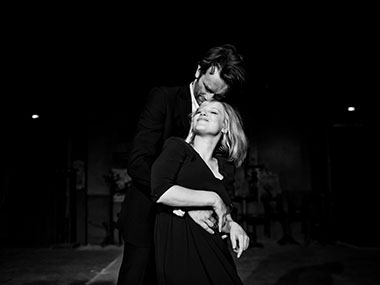
Tomasz Kot, Joanna Kulig
10. “Cold War”: Polish auteur Pawel Pawlikowski's immaculately lensed follow-up to “Ida” is a tightly constructed chronicle of the combustible 15-year love affair between a music director (smoldering Tomasz Kot) and the younger performer (a sensational Joanna Kulig) who makes his life heaven and hell on Earth rolled up into one as communism rises across Eastern Europe. Unlike the other black and white awards season contender poised to bring home the gold on Oscar night, this compact romance allows you to marvel at its ravishing visuals while still immersing you in its recreation of Europe in the '50s and '60s. Cinematographer ukasz al allows himself more camera movement than he did shooting “Ida,” bringing welcome fluidity to his otherwise rigid, square-shaped compositions.
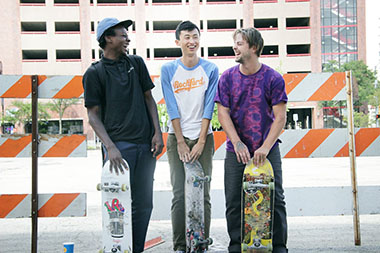
Keire Johnson, Bing Liu, Zack Mulligan
9. “Minding the Gap”: Bing Liu and his buddies liked to go skateboarding around their Rockford, Illinois neighborhood, and the Beijing-born Liu brought his camera along to record the action. But what starts out as expertly edited home movies becomes something a lot more potent, as he continues to follow his friends, Keire Johnson and Zack Mulligan, and his own journey for the next 12 years as they navigate early adulthood. What emerges in this captivating Hulu documentary is a fully realized portrait of lives in flux, of dreams dashed and responsibilities tackled. Rather than just keep a record of their experiences, Liu connects the dots in provocative ways, discovering these young men are linked by a vicious cycle of violence and disillusionment. And yet Liu never strains for significance, making an exhilarating film that feels tailor-made for T-shirt-and-jeans fans of nonfiction fare like this critic. Simply wonderful.
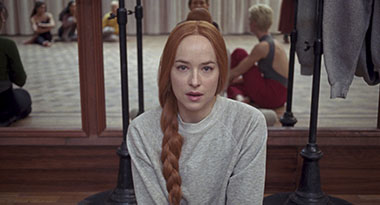
Dakota Johnson
8. “Suspiria”: Cackle all you want, haters. Luca Guadagnino's cerebral and unsettling reimagining of Dario Argento's “giallo” staple provides the artfully rendered rendezvous with the occult “Hereditary” promised but only delivered in the most superficial, self-serving ways. Yes, it's too long and bites off more than it can chew in thematic and narrative terms, but this witches' brew, ambitious to a fault, is propelled by all too real demons. (Imagine Rainer Werner Fassbinder trying his hand at horror.) Dakota Johnson, never better, headlines an eclectic and committed cast that features Guadagnino muse Tilda Swinton flexing her thespian muscles as an instructor at a renowned Berlin dance academy that doubles as a coven (that choreography is a real killer), as well as an aging male doctor whose wife vanished during World War II. A spellbinder.
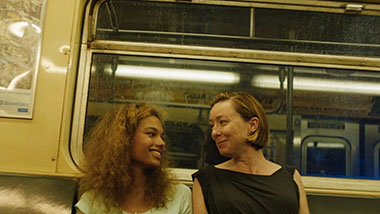
Helena Howard, Molly Parker
7. “Madeline's Madeline”: I avoided this one-of-a-kind indie drama like the plague when it came out last year, unfairly pegging it as the kind of precious, navel-gazing fare that makes me break out in hives. Oh, what a fool I was. Josephine Decker's bracing high-wire act takes you into the unstable mind of the titular character (breakout sensation Helena Howard), a teenage girl who appears to be near the breaking point, yet finds a precarious harmony performing in an avant-garde theater troupe. Yet that joy she derives from displaying her formidable acting chops is put to the ultimate test when her troupe director (Molly Parker) suggests incorporating more aspects of the teen's chaotic home life, particularly her deteriorating relationship with her harried mom (Miranda July). The sparks fly as Decker tears off the blinders and invites you to embrace the madness.

Constance Wu
6. “Crazy Rich Asians”: It's safe to say I had my doubts as to whether the director behind “Step Up 2: The Streets” and “G.I. Joe: Retaliation” could do justice to Kevin Kwan's kaleidoscopic 2013 novel about an NYU economics professor (Constance Wu) and her trial by fire after she discovers her strapping fiancé (the dashing Henry Golding) is heir to one of the wealthiest families in Singapore. But Jon M. Chu, aided by screenwriters Adele Lim and Peter Chiarelli, not only delivers the goods in grand style; he jettisons the mean streak that, to me, marred the source material. A wise move, because even if the finished product follows the rom-com template a tad too closely, it also imbues this sparkling Cinderella story with a generosity of spirit that recalls Golden Age comedies by George Cukor and Vincente Minnelli (think the Spencer Tracy/Elizabeth Taylor “Father of the Bride”), as well as Ang Lee's “Father Knows Best” trilogy from the '90s. You ought to find the poster art for this charmer in Merriam-Webster under “buoyant.” (It's also safe to say Mom would have loved this movie.)
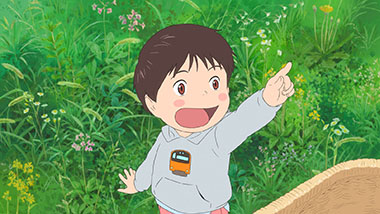
voice of Moka Kamishiraishi
5. “Mirai”: Studio Ghibli aside, anime films haven't crossed over beyond their faithful niche audience very often. I fear that, well-deserved Oscar nomination notwithstanding, this enchanting fantasy from director Mamoru Hosoda is not likely to turn this trend around, and that's a shame. What gives this soul-tingling family tale its universal appeal is not that its flights of fancy and time-travel elements are richly rendered, but that they are couched in the kinds of growing pains that travel across borders and oceans, in this case, the complicated emotions that come when a new sibling enters the picture. It also drives home the notion that we were all, at one point in our lives, insufferable little brats who wanted nothing more than hog our parents' attention. Come on, now, don't try to deny it.

Jyo Kairi
4. “Shoplifters”: The family that steals together stays together in this gently observant gem from Japan that took home the 2018 Palme d'Or at Cannes and, for my money, is the finest effort to date from prolific director Hirokazu Kore-eda (“After Life, “Still Walking”). The titular clan is a motley crew that looks and acts like a family on society's fringes but whose actual relationship is far more tangled than this deceptively modest and understated film initially lets on. The pace is slow and studied, but Hirokazu rewards your patience with a doozy of an ending that makes you reexamine what you've just seen without ever feeling the least bit gimmicky. Satyajit Ray's spirit is alive and well in this soulful drama bolstered by revelations that almost make it feel like a suspense film. If there's any justice at the Oscars later this month, this is the one, not “Roma,” that should walk away with the Foreign Language Feature statuette.
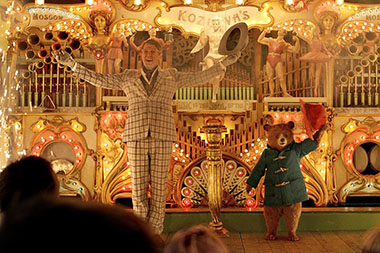
Hugh Grant, Ben Whishaw (voice of)
3. “Paddington 2”: Kindness wins the day, again, in this heart-tugging treat from director Paul King, who outdoes his already swell 2014 contemporary update of Michael Bond's children's books about a Peruvian bear who ends up in London, eventually adopted by a genially eccentric family who introduces their furry new addition to the pleasures of marmalade sandwiches. In this new chapter, Paddington (the voice of Ben Whishaw) finds himself in trouble with the law when he's framed for a break-in by a washed-up actor (a divine Hugh Grant). The slim plot once again lends itself to some inspired physical humor that never allows its digital imagery to feel generic. King also doesn't lose sight that this is the story of a refugee, wrongfully locked away by forces wanting to uphold the status quo, who teaches children good manners and shows grown-ups xenophobia has no place in any society. If this is ringing a distant bell, that's because the “Paddington” is most certainly following on the footsteps of the “Babe” movies, and boy, do we need their soothing brand of cinema these days. Eat your heart out, Disney.
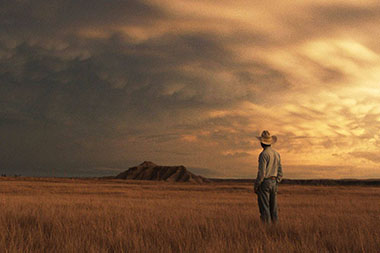
Brady Jandreau
2. “The Rider”: It could have been a bleak wallow in misery, but writer-director Chloé Zhao's badlands rhapsody never lets her mournful portrait of a South Dakota rodeo star of Lakota Sioux descent, who is sidetracked after an injury leaves him with brain damage, from becoming too much of a downer. That doesn't mean she doesn't make viewers experience the despair her protagonist feels when suddenly confronted with the reality he can no longer pursue doing the very thing that he loves most. Zhao (“Songs My Brother Taught Me”) sets up quite the challenge for herself by casting non-actors essentially playing fictionalized versions of themselves. Thus star Brady Jandreau saw his own riding career come to an end due to a near-fatal accident, and his real-life father and sister play his father and sister. But Zhao's lyricism, brought to shimmering life by cinematographer Joshua James Richards (“God's Own Country”), turns what could have easily been a leaden docudrama into a work of astonishing beauty. At the time of its initial South Florida release at the Miami Beach Cinematheque, I tweeted that Zhao's “terse poetry [is] forged from the crippling ache of broken dreams.” That remains as fitting a description as I can muster.
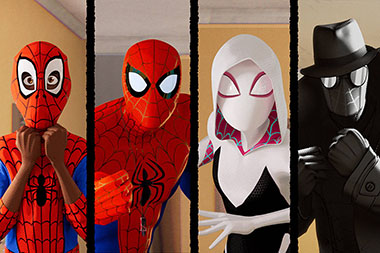
voices of Shameik Moore, Jake Johnson, Hailee Steinfeld, Nicolas Cage
1. “Spider-Man: Into the Spider-Verse”: No, this is not a misprint or a typo. The best time I had at the movies came, not from a highly touted prestige production, but from a big studio release that dares to dream big and infuses new life into an oversaturated genre. Sony's animated foray into the iconic webslinger turns the Peter Parker story on its head by turning Parker into a mentor to another Spidey: Miles Morales, a smart, half African-American/half Puerto Rican teen from Brooklyn with deep-seated resentment of class privilege and a gift for graffiti art. Despite its clever depiction of alternate dimensions and blending of animation styles, this eye-popping yarn doesn't really break new ground, at least not from a narrative standpoint. If you take away the self-referential flourishes, you're still left with a fairly standard origin story. And yet it all feels vibrant, freshly minted. Credit directors Bob Persichetti, Peter Ramsey and Rodney Rothman with being able to blend so many disparate elements so seamlessly, as well as a terrific screenplay, by Rothman and Miami's own Phil Lord, that mixes coming-of-age doldrums, identity crisis, dazzling setpieces and goofy laughs into a balanced whole. The spandex stretches mighty far here, enough that “Spider-Verse,” more than an homage, feels like a rebirth of the comic book film, a high-flying adventure that swings for the fences and reaches the stratosphere. It really is that special, and as of this writing still going strong in theaters. For the first time in years, 12-year-old me and grown-up me are in perfect alignment as to their favorite film of the year. So what are you waiting for? Go take the plunge.
Let's also hear it for the runners-up, which, like most of my top ten titles, are available to rent or stream on several platforms. In alphabetical order: “Bisbee '17,” “The Day After,” “First Reformed,” “Isle of Dogs,” “The Old Man & the Gun,” “Scotty and the Secret History of Hollywood,” “Shirkers,” “Vox Lux,” “Won't You Be My Neighbor?” “You Were Never Really Here.”
The annual tradition continues. I will be live tweeting during the Academy Awards on Feb. 24. Look for my handle, @RubenRos, and a generous helping of snark.
 MAIN MENU
MAIN MENU

